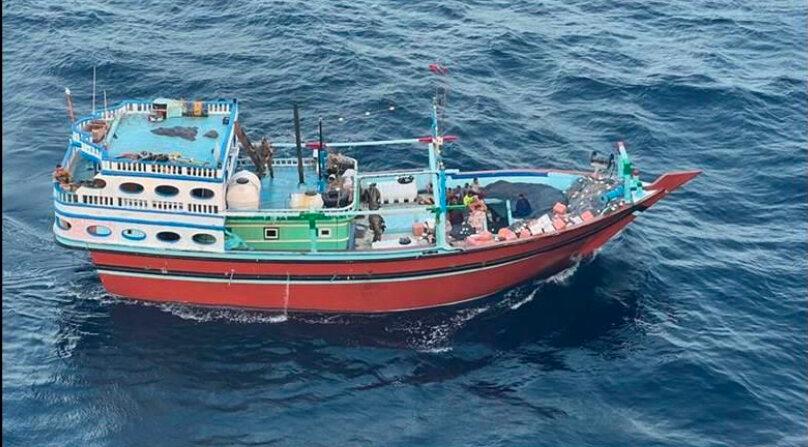Two U.S. Navy SEALs, who went missing off the coast of Somalia during a mission to board a ship carrying Iranian weapons, have been declared dead following a failed 10-day search operation.
In a statement on Jan. 21, U.S. Central Command (CENTCOM) said the two personnel were reported missing on Jan. 11 after boarding “an illicit dhow carrying Iranian advanced conventional weapons.”





